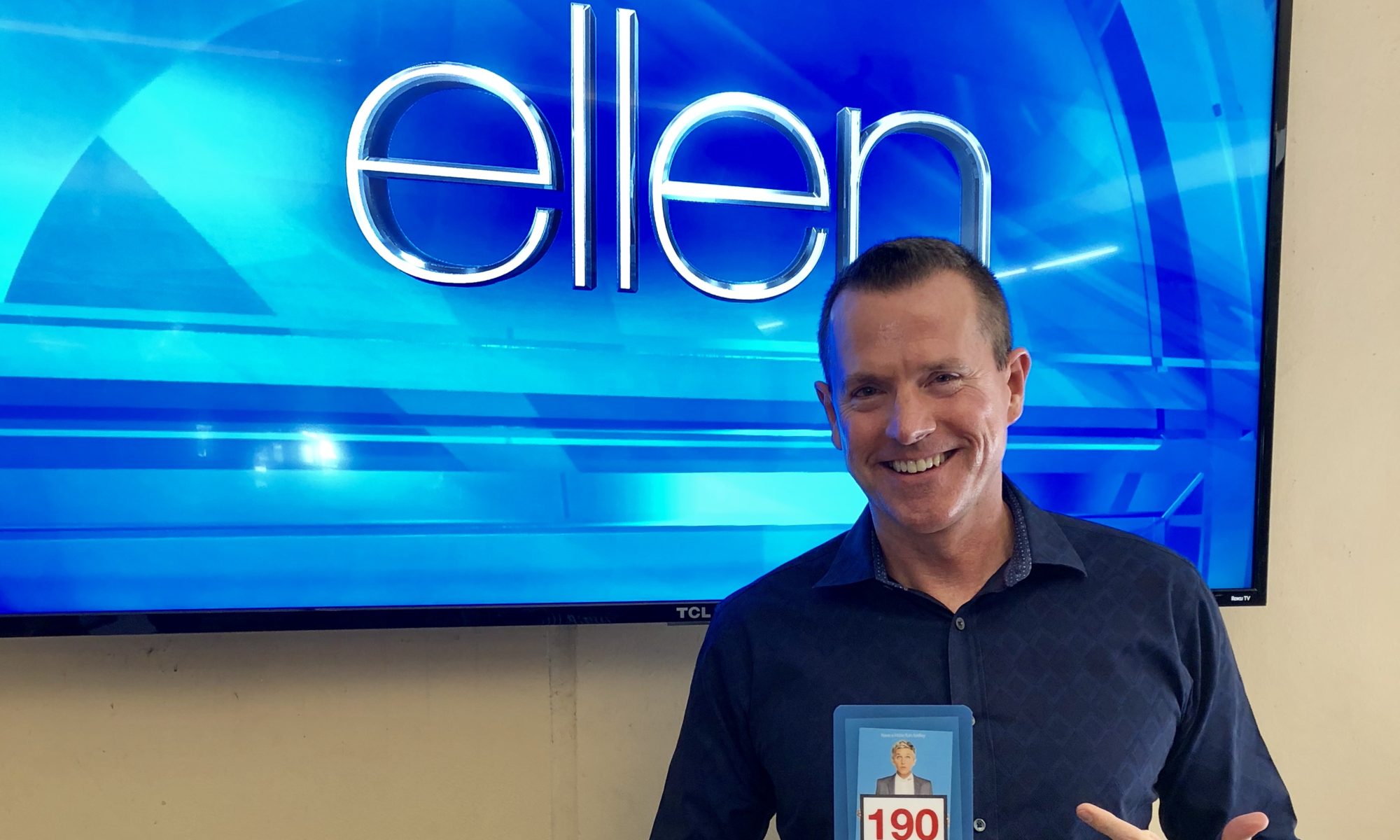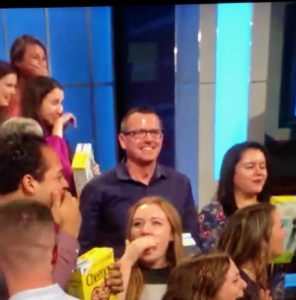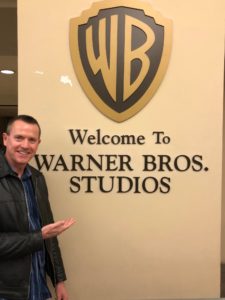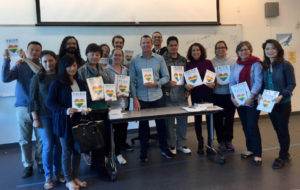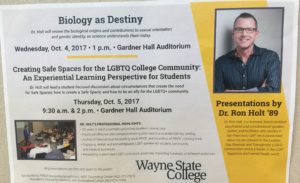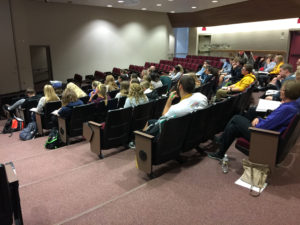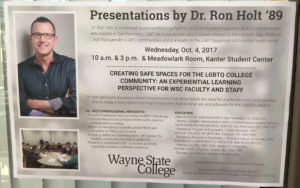LGBTQ Medical Case Scenarios: An Experiential Learning Perspective
The presentation consisted of reviewing LGBTQ medical case scenarios through the lens of City College of San Francisco medical interpreter students. The class divided into small breakout groups, which allowed an experiential learning perspective. After discussing a particular case as a smaller group, the group would present the case to the whole audience with Dr. Holt as the facilitator.
The audience consisted of medical interpretor students. Afterwards we had a book signing for both of the books PRIDE, which were donated to the students compliments of Dr. Holt.
Audience feedback/impact of this presentation:
Very good choice of vignettes covering diverse issues. As a gay man a lot of the topics were familiar to be, but the presentation helped me expand my knowledge. Very good ideas on how to be more welcoming to LGBTQ patients through visual tags/badges. – M
Your speech is very helpful for us as interpreters. We learned a lot about LGBTQIA. This will help me to serve our patients better. – M
I learned how to open the door with someone who is struggling, because it is applicable to not only gender issues but any issues to ensure that others feel like they can depend on someone. I will try not to assume people’s gender but if I do, I will try to be open, apologize if I offended them, and ask open ended questions. – M
Great scenarios and I learned a lot. Some of the cases Dr. Holt mentioned are impressive and will help me in my future career. I learned the definitions of gender identity, gender nonconforming, gender dysphoria, etc. Also how to respond in an open-ended and gender-neutral language when talking to LGBTQ people. – F
I learned to always ask open eded questions to avoid offending anyone; don’t out someone when they are not ready; don’t assume things; and be sensitive about offending unintentionally. The talk is going to make me more aware of my behaviors and actions towards a patient. This is also a life lesson that can be used towards building relationships with anyone. It helped me think more deeply. – F
Great vignettes! They were a good eye opener and also good info for everyday life and to practice as HCI. I already considered myself very open to understanding the LGBTQIA community. But for sure I didn’t know many things I learned today. Very important info to keep on mind when interacting with people from this community and other ones, too. – F
Thanks for this presentation. It was very helpful, informative, and enjoyable. We can’t label anyone. We have to go with how they identify themselves. The talk is going to make a big difference with how to open the door to others and make them feel accepted. – F
Good material to learn from. I learned pansexual and other LGBTQIA vocabulary. Learned how to approach and deal with LGBTQIA community. – M
Very informative. I learned acceptance for everyone. I have more knowledge. – M
Everything was explained clearly and I learned a lot about how difficult trans people’s lives can be. I will be more open and sensitive when the patient is trans. – F
Very educational. I learned concepts and words I’ve never heard before or that I have known, but I couldn’t understand their full concept. I learned the difference among sexual orientation and gender identity, and gender nonconformity vs gender dysphoria. This talk will help me to communicate much better with the LGBTQIA community. – F
Before this class, vague knowledge about LGBTQ. After class, I have a clearer picture. I leaned the definitions and differences of LGBTQ; and how to handle and treat the community of LGBTQ in a comfortable and reasonable way. Don’t make any assumptions for any patients you meet. Also, ask and clarify before any actions and decisions. – F
Discussions are thought provoking. I learned the term genderqueer, putting up a sign, and wearing a LGBTQ affirmative pin. – F
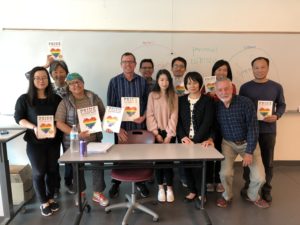
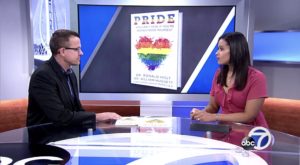
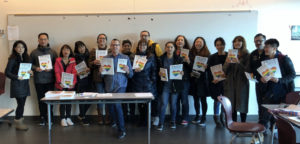
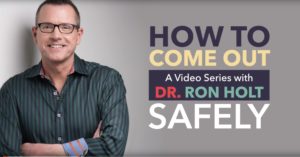
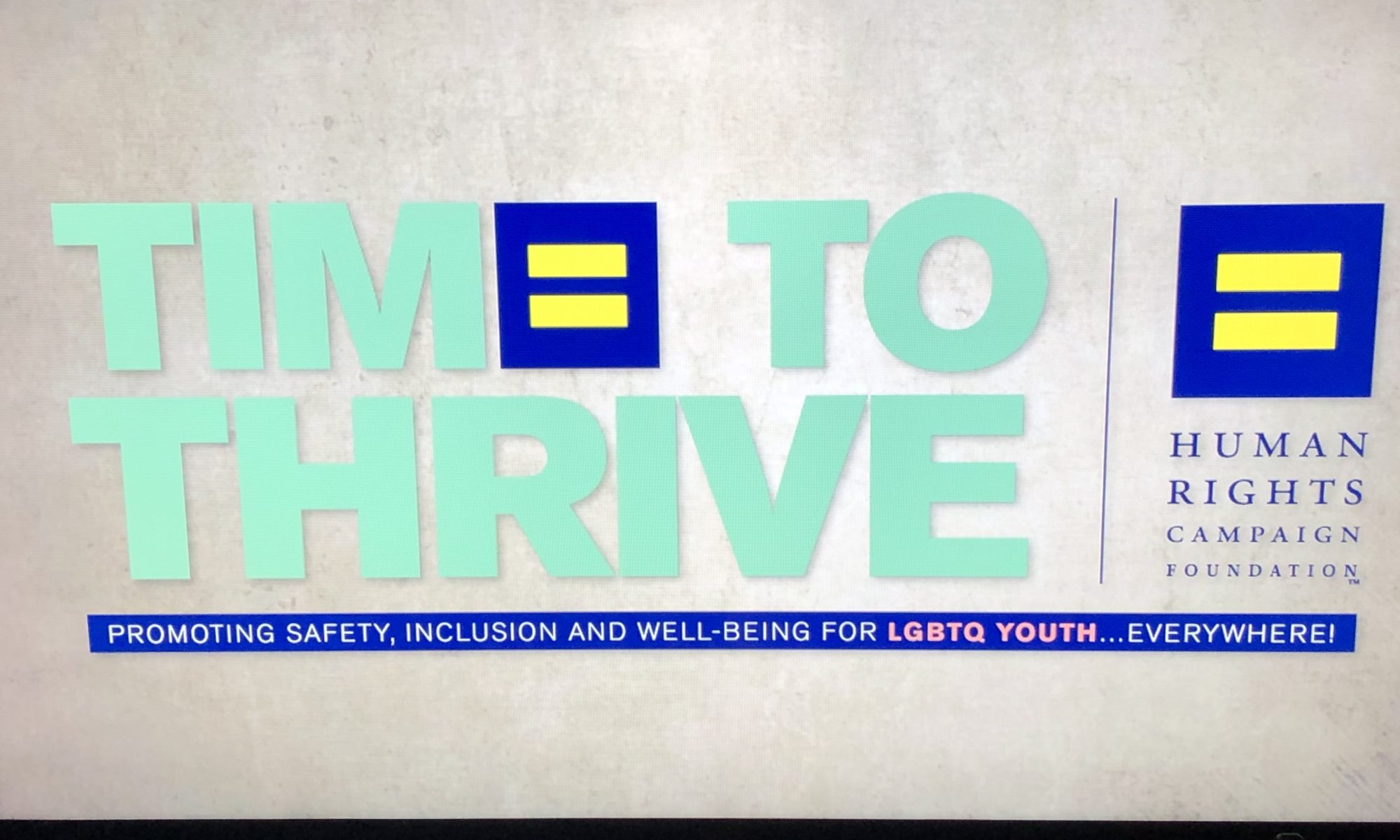
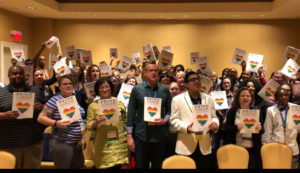 Gender, Sexuality, and Mental Health: Creating an LGBTQ+ Safe Space Through an Experiential Learning Perspective.” Over 75 participants attended this workshop making it one of the best attended workshops of the entire conference.
Gender, Sexuality, and Mental Health: Creating an LGBTQ+ Safe Space Through an Experiential Learning Perspective.” Over 75 participants attended this workshop making it one of the best attended workshops of the entire conference.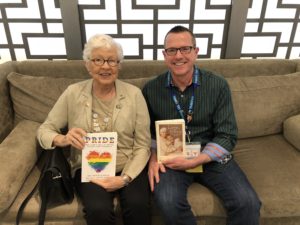 “Love, Ellen – A Mother/Daughter Journey” and “Just a Mom”. It was a tremendous joy for me to exchange with Betty signed copies of our books. She is an inspiration to me and countless others across the globe. I first met Betty in 2012 in San Diego at the Center for Excellence in School Counseling and Leadership Conference. The world is better with people like Betty in it.
“Love, Ellen – A Mother/Daughter Journey” and “Just a Mom”. It was a tremendous joy for me to exchange with Betty signed copies of our books. She is an inspiration to me and countless others across the globe. I first met Betty in 2012 in San Diego at the Center for Excellence in School Counseling and Leadership Conference. The world is better with people like Betty in it.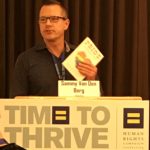 invited to attend the youth summit. The summit supplied lunch for the youth followed by a panel presentation about being LGBTQ+ in corporate America. Before the panel started, I was given the opportunity to introduce myself, my book and my coloring book.
invited to attend the youth summit. The summit supplied lunch for the youth followed by a panel presentation about being LGBTQ+ in corporate America. Before the panel started, I was given the opportunity to introduce myself, my book and my coloring book.